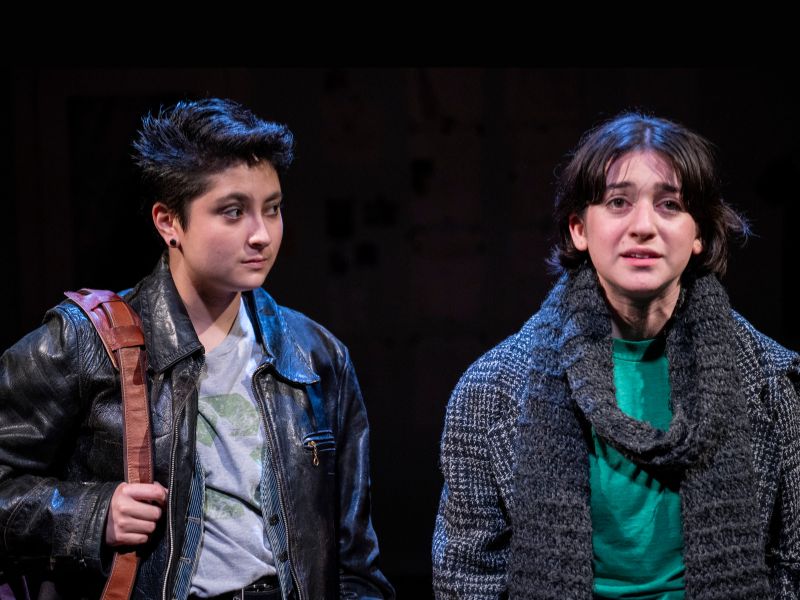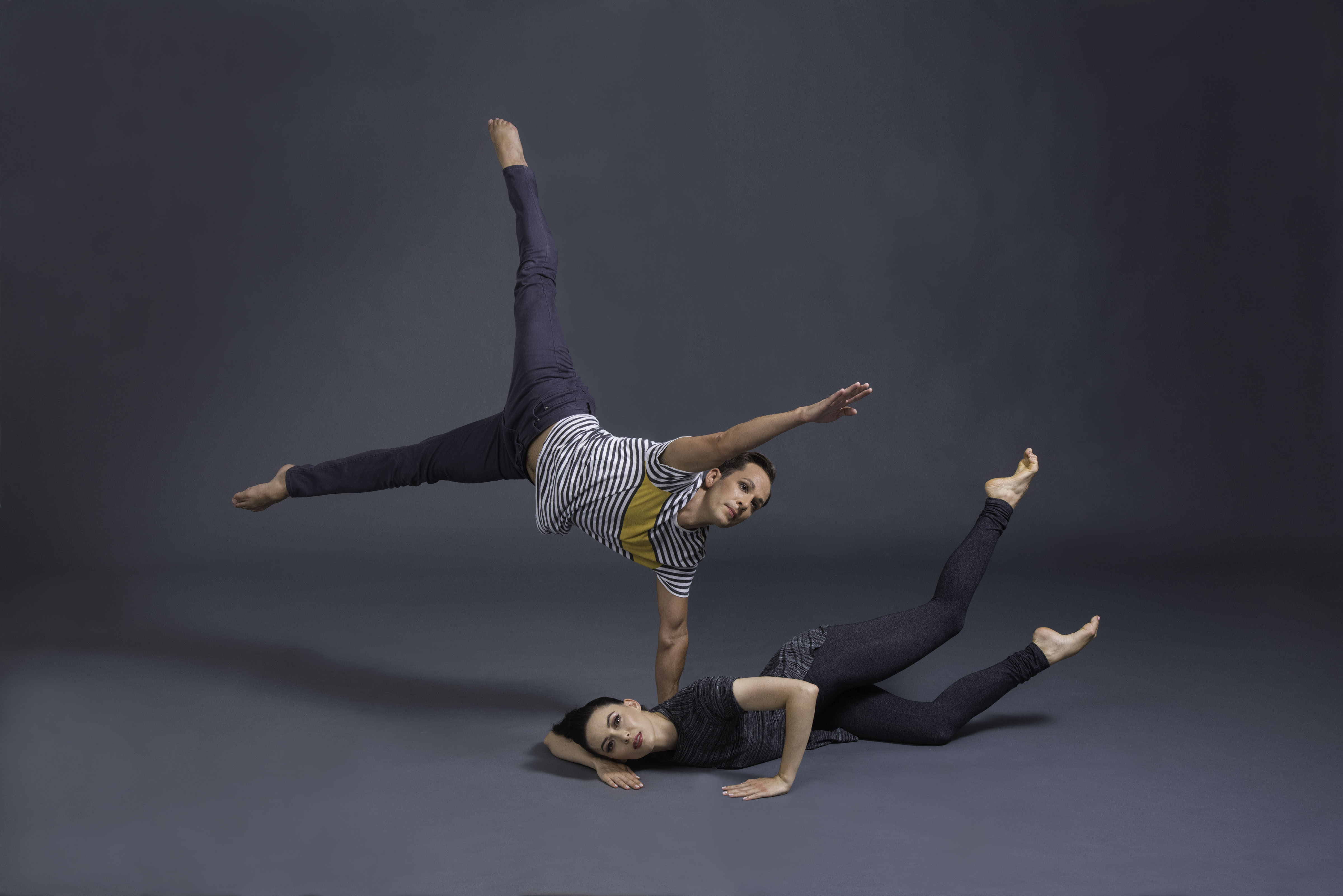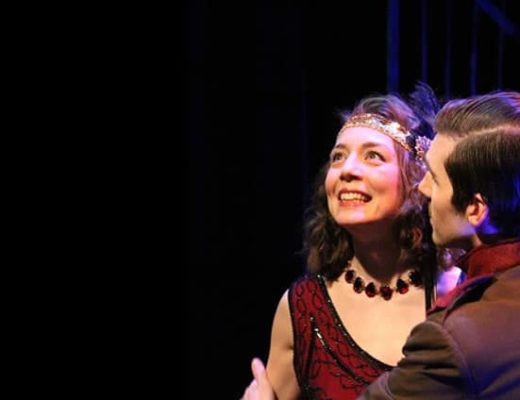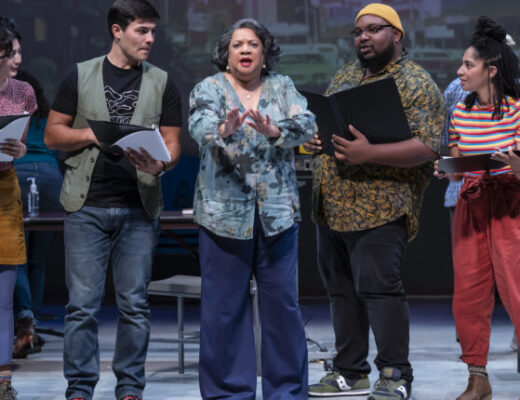By Daarel Burnette II
This article was originally published in DC Theater Arts here.
What binds together the LGBTQ community most is what’s commonly known as the coming out process: grappling to find language to describe an incoherent feeling that’s deemed unnatural, revving up the courage to say those words out loud, and then waiting to see who will accept or reject this realized version of you.
The distinguished cast of Fun Home, now playing at Studio Theatre under the commanding direction of David Muse, manages to pack what for many of us is a years-long, awkward, and sometimes tortuous experience into a 90-minute, rousing coming-of-age musical.
Actors Bobby Smith (who plays the father who’s coming to terms with his own sexuality) and Andrea Prestinario, Maya Jacobson, and Quinn Titcomb (who play different ages of daughter Alison, who’s also coming to terms with her own sexuality) deliver standout performances, climbing up and down the wide range of emotions experienced by those who have come out the closet.
There’s a reason Studio’s concession stand is selling packs of tissues. Buy two.
Fun Home is based on the 2006 graphic memoir written by the cartoonist Alison Bechdel. Lisa Kron and Jeanine Tesori adapted it into a musical, and after its 2015 Broadway debut, it became one of the first mainstream musicals on Broadway to feature a lesbian. It’s won plenty of awards.
In the meta-musical, a modern-day version of Alison sketches a graphic memoir of her life, in the process reflecting on growing up under the watchful eye of a closeted father, Bruce, who also happens to be a perfectionist. Her mother, Helen (played by Rebecca Pitcher), grapples with whether to keep secret Bruce’s growing proclivities, especially when his relationship with a young man named Roy (played by Adante Carter) turns inappropriate, and then again when he runs afoul of the law.
Siblings Christian (played by August Scot McFeaters) and John (played by Teddy Schechter) offer a lilt to this at-times dark tragedy.
There’s pitch-perfect, harmonious singing, and lots of disco dancing.
Because the plot is nonlinear and jumps back and forth between, among other things, Alison’s studio, a funeral home, a highway, a living room, and a college dormitory, creating a tidy set that makes sense is a bit of a puzzle. But set designer Debra Booth was helped tremendously by lighting designer Brian Tovar, who, for example, flickered bright lights on Small Alison’s face to indicate she’s watching the television, or flashed up and down the aisles passing headlights to let the audience know they were now on the highway.
Costume designer Sarah Cubbage serves the ultimate alley-oop, though, by picking the most perfect, blast-from-the-past outfits: lots of plaids and stripes, too-thick ties, browns matched with pinks, and starched collars and glittery platform heels.
Actors pantomimed their ways through other parts to keep the necessary props to a minimum. This can be confusing. Sometimes Alison draws with a pencil. Other times, she draws with an imaginary pencil. Actors face the audience, hands to their side, to indicate they’re on the phone with other actors on stage. And no driver’s hand ever touches an imagined or real steering wheel.
But this quirk at times frees actors to display their superb acting skills, which will resonate with LGBTQ and straight audiences alike.
Bruce and Roy longingly and disturbingly stare at each other. Alison, John, and Christian tussle for their father’s approval. Helen is enraged by her husband’s behavior, before experiencing bouts of embarrassment and grief.
Watch especially Bobby Smith’s version of Bruce: the way he erupts at the slightest imperfection that could bring embarrassment to himself and his family, the way his secret physically bears down on him through the decades, the way his hand quivers when trying to describe his fears. (Bruce’s “Edges of the World” is performed in a way that will stick with me for a very long time.)
Watch Maya Jacobson’s version of Medium Alison, after she for the first time experiences sex with college classmate Joan, played by Thani Brant. Alison’s “Changing My Major” is a comical song of self-discovery and heartfelt romance, rarely provided to queer characters on stage.
And please, please, please watch Quinn Titcomb, whose stellar performance of Small Alison conveys some of the most complicated, at times conflicting emotions of LGBTQ youth: the way she pauses for an extra beat when her father demands that she wear a dress, the look of confusion expressed in “Ring of Keys” when struggling to find the way to describe the familiarity she felt when she first met a gender-nonconforming woman, and her longing wish to one day fly away.
Subtle but piercing.
Coming out en masse was a linchpin of the LGBTQ movement in the 1980s and ’90s and why its activists managed to gain so many allies at the height of the AIDS crisis.
Studio has a long tradition of exploring the nuances of LGBTQ lives. So much, in fact, that a coming-of-age musical about a lesbian grappling with her sexuality may seem retro and even basic for a DC theater that was draped in pride flags just last week.
What more is there to know?
Today, the internet provides young trans people with both community and language that have blossomed into a new coming-out movement. That, in turn, has frightened a large swath of Americans, and the government in response has turned to muting the teachers and artists who shape their coming out experience.Fun Home’s return to the stage is right on time.





No Comments